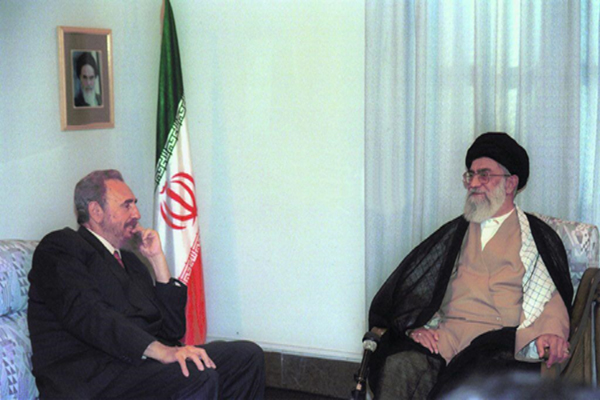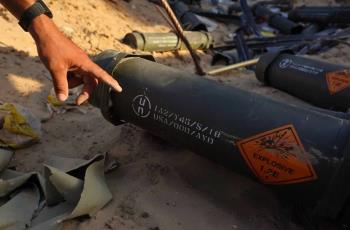Alwaght-The world is mourning the passing away of Fidel Castro, a gallant revolutionary who fought for his people and fearlessly resisted global imperial powers especially the United States.
"The commander in chief of the Cuban revolution died at 22:29 hours this evening," President Raul Castro, his brother, announced with a shaking voice on national television. He ended the announcement by shouting the revolutionary slogan: "Towards victory, always!" Castro, who celebrated his 90th birthday August this year, had been in poor health since an intestinal ailment nearly killed him in 2006.
Fidel studied law at the University of Havana in 1945 during a time when the world was divided ideologically between Capitalism and Communism. As expected, the prevailing environment at the university was one of very heated debates between students leaning to the two opposing camps. In 1948 Carlos Prio took over Cuban presidency and subsequently handed over the country to the American Mafia who plunged it into Uncle Sam’s island of immorality.
This situation hardened Fidel’s revolutionary passion leading to the start of the Cuban revolution began in July 1953, and continued sporadically until the revolutionaries finally ousted Fulgencio Batista on 1 January 1959, replacing his government with a revolutionary socialist state. Castro's government implemented social projects to improve Cuba's standard of living making the country an inspiration for third world countries. Cuba now has the lowest infant mortality rate on the entire American continent with the exception of Canada.

In January 1961, Castro demanded that the US Embassy in Havana must reduce its 300-member staff, after obtaining evidence that that many of them were spies disguised as diplomats. Following the order, the Washington severed its ties with Havana. Fidel Castro survived over 600 assassination attempts, most of them backed by the CIA, and a potential nuclear war after the failed Bay of Pigs invasion undertaken by the CIA-sponsored paramilitary group Brigade 2506 on 17 April 1961.
Fidel stepped down as president on February 2008 due to illness and thereafter, Cuba's National Assembly, nominated his brother Raul Castro as president.
Fidel Castro Backed Global Anti-Imperialism Movements
Fidel Castro was not just a revolutionary at home but also supported other nations in their struggle against imperialism.

The achievements of the Cuban revolution in the 1960s lead to an emergence of revolutionary movements which, backed by Fidel, fought against right-wing dictatorships and US imperialism in Central America. In the southern African state of Angola, Castro sent more than 25,000 troops and military advisers during the war that ultimately helped win the independence of the country and later supported the country’s government which was battling CIA-backed rebels. He also supported neighboring Namibia’s independence, thus curbing the ambitions of white supremacist South Africa. While he was still alive, Nelson Mandela cited Cuban support for the war against CIA-backed South Africa in Angola as a great anti-apartheid victory. Fidel also identified with and helped South Africa in the struggle against the apartheid regime.
Castro’s Tribute to Iran’s Islamic Revolution
Fidel Castro visited Iran in May 2001 and met Leader of the Islamic Revolution Ayatollah Ali Khamenei. The Iranian Leader said, "Our resistance against the US hegemony is based on Islamic beliefs that Iran regards any resistance against arrogance in the world as a righteous move."

On his part, Castro denounced the Western hegemony, saying that "the West, and particularly the US administration, despite their vast propaganda, act in a totally uncivilized manner."
He agreed with Ayatollah Khamenei on the point that the US is "extremely weak today," adding that "we are today eye-witness to their weakness, as their close neighbors."
Castro further stressed that "we are not scared of America today, and Cuba is stronger than ever in the past, forty years after the victory of its revolution."
The Cuban revolutionary leader also addressed an enthusiastic student audience at the University of Tehran that "imperialism was the greatest danger and the enemy of the world.”
In the speech, Castro saluted the Iranian people for their courage and heroic self-sacrifice during the 1979 revolution that overthrew the US-backed Shah (king) of Iran. He said, "You were able to overthrow the biggest gendarme in the region not with guns, but with your ideas, culture, and patriotism."
"One Shah still remains in the world," Castro told the students. "That is the Shah of imperialism which is entrenched near my homeland. It is an exploiting Shah that wants to impose its system on the entire world and drag it into oppression," he said, adding that, “As the Shah of Iran was overthrown, this Shah too will fall!"



























